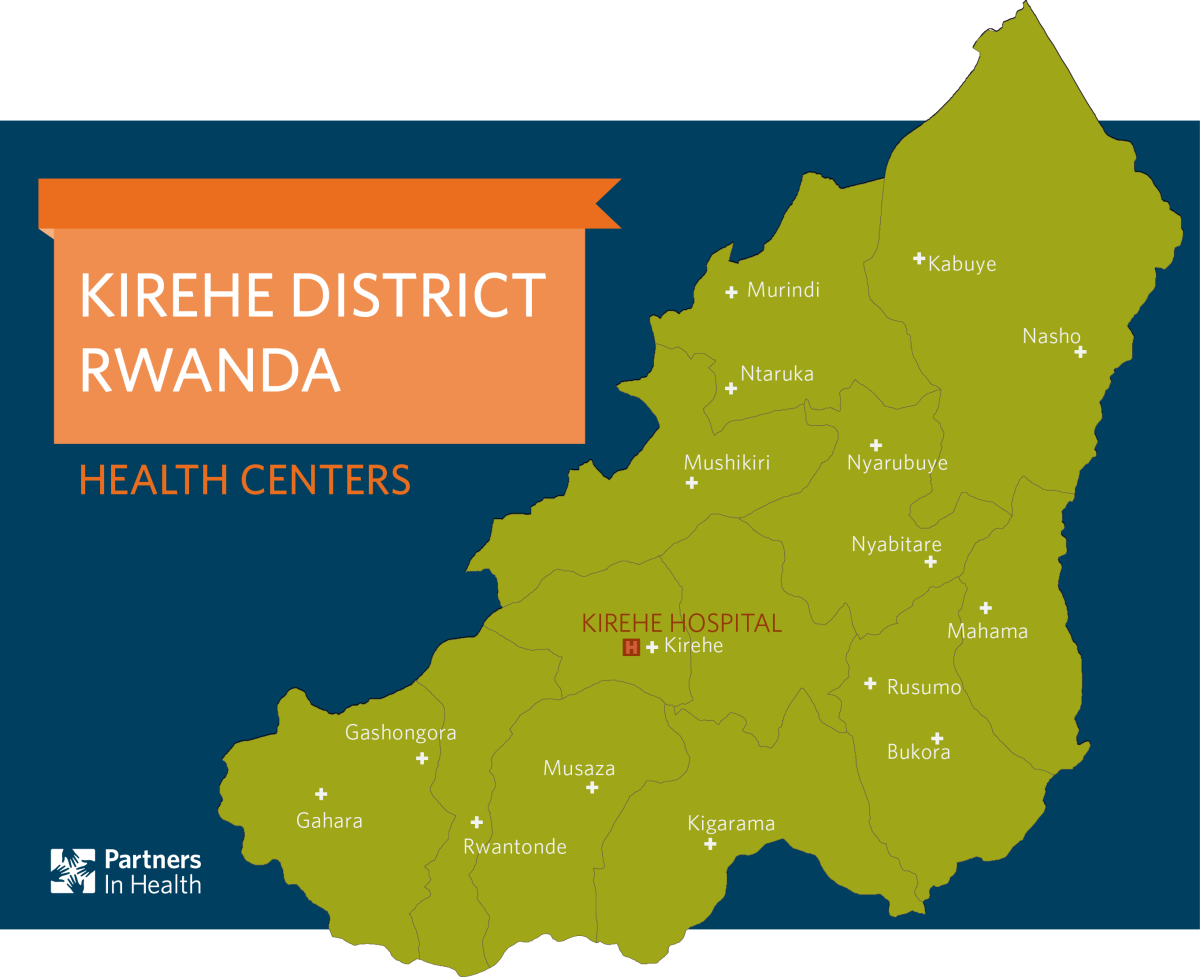‘Race to the Top’: Competition Aims for Quality Care in Rwanda
Posted on Jun 19, 2014

There’s nothing wrong with a little competition, especially if it improves access to health care in rural Rwanda. That’s the idea behind “Race to the Top,” a collaborative effort between Partners In Health’s Rwandan sister organization and the government of Rwanda that targets and improves specific health indicators where barriers persist.
PIH works in three districts in Rwanda—Burera, Southern Kayonza, and Kirehe. Each is home to a number of health centers that provide a range of outpatient services, from family planning to rapid malaria testing. These health centers are the first point of contact many patients have with the health system. Different districts face different challenges. Take Kirehe, where health centers have made enormous strides in recent years, yet malnutrition rates in children under 5 and maternal and newborn mortality rates are stubbornly high.
That’s where the “Race to the Top” comes in. It’s designed to foster healthy competition among health centers in each district and push them toward priorities identified by Rwanda’s Ministry of Health. For instance, the 16 health centers in Kirehe are working to see which can be the first to hit three specific targets: a 50 percent increase from the previous quarter in the number of women who have initiated family planning methods; the elimination of severe acute malnutrition in children under 5; and 90 percent enrollment of all patients in the health center’s catchment area in mutuelle de santé—Rwanda’s state-backed health insurance—or similar coverage. Health centers aren’t only competing for bragging rights; financial incentives are tied to progress on these indicators.
“‘Race to the Top’ encourages health center teams to work hard, concentrate their efforts toward reaching specific targets related to district priorities, and develop innovative approaches to overcoming challenges,” says Dr. Evrard Nahimana, Kirehe District’s clinical director. “For example, at Gashongora Health Center, the staff worked with local authorities to identify vulnerable families, which were then provided with land to cultivate and cows for milk production. The staff at Kabuye Health Center developed a program to provide fish for all kids under age 5. This type of combined social and clinical support is key to addressing malnutrition, maternal health, and similar challenges.”
Teams are not competing against one another, they’re competing together to achieve excellence.
One of the program’s biggest benefits, Nahimana says, is how swiftly it improves communications and information sharing among the health centers. When one team tried a new approach and it worked, the strategy was shared with other health centers. That’s the essence of positive competition; teams are not competing against one another, they’re competing together to achieve excellence.
“‘Race to the Top’ creates space for the different teams to share their experiences,” Nahimana says.
The goals of the program were set intentionally high. Nahimana notes that while no health center in Kirehe has hit all three goals in a single period, each has made steady, sustainable improvements. Some health centers provided family planning services to more than 1,000 women in the competition timeframe. Others saw significant jumps in the percentage of patients with health coverage. Strategies to improve food security will making lasting improvements for families and communities.
In the coming year, our Rwandan colleagues plan on working closely with local governments to expand this model to Burera and Southern Kayonza Districts. The program’s agile design allows us to modify the targeted health indicators to ensure we’re improving care for the most vulnerable patients in these communities.
“It is so impressive to see the innovations each health center implemented to push toward the program’s goals in Kirehe,” Nahimana says. “It’s exciting to know this program will help improve access to health care for patients facing different challenges in all of our districts.”

